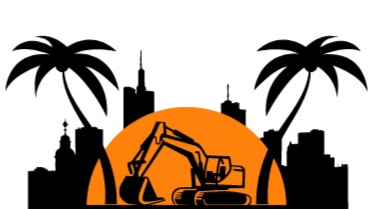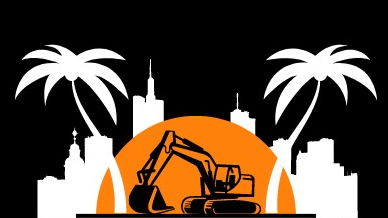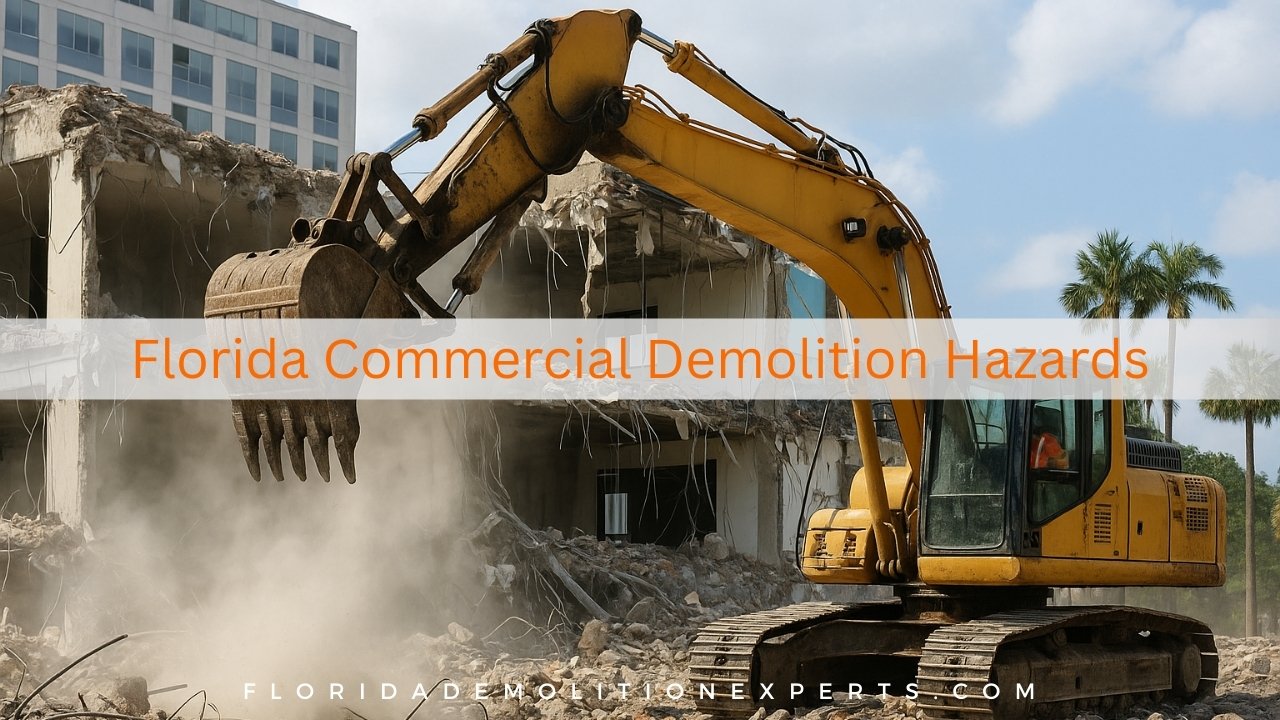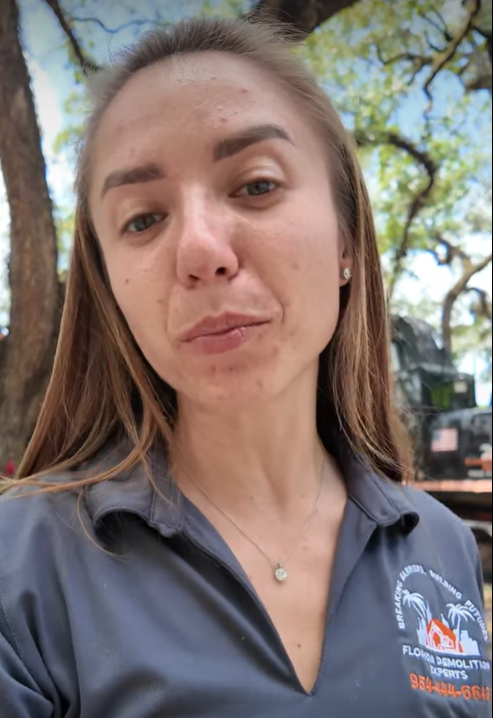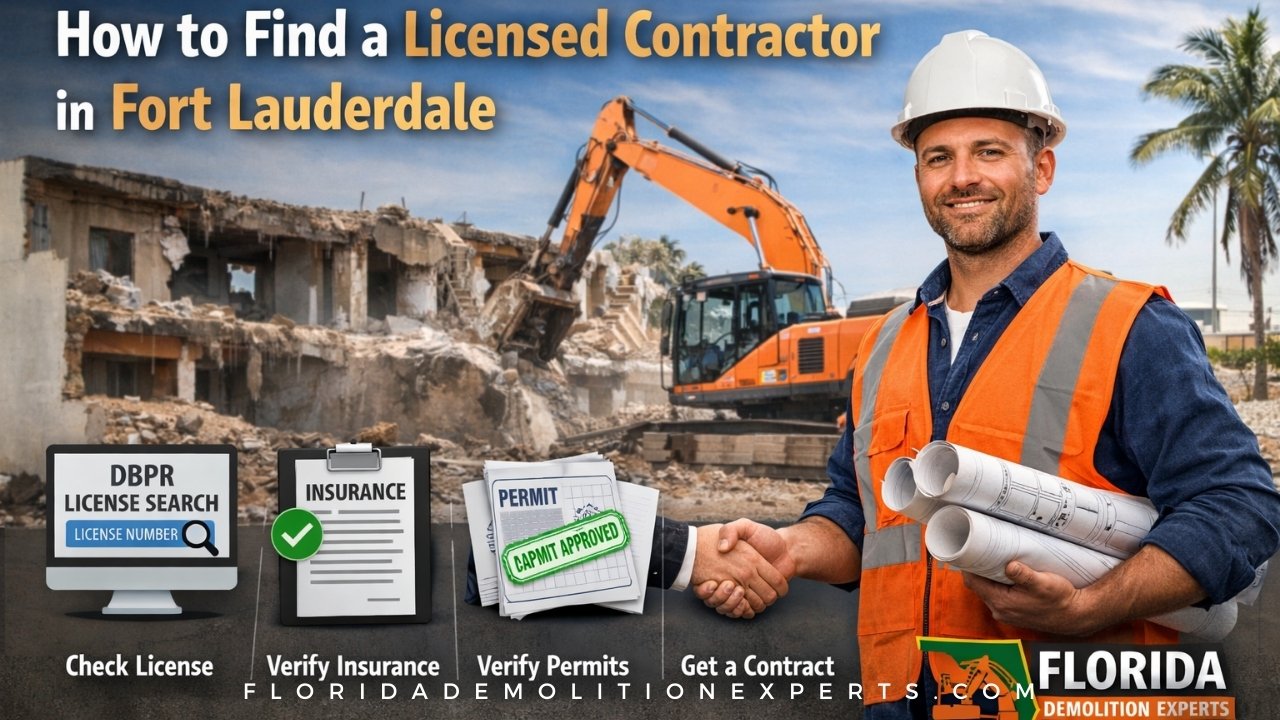Have you ever wondered what could happen during a commercial demolition project in Florida?
While demolition looks like controlled chaos from the outside, it’s one of the most high-risk construction phases. Florida adds another layer of complexity with its coastal weather, strict building codes, and older structures that may hide hazardous materials.
For business owners, ignoring these risks can mean project delays, costly fines, or severe injuries on-site. The good news is that most hazards can be avoided with proper preparation and safety measures.
This guide will break down Florida’s most common demolition hazards and explain how to prevent them effectively.
Why Florida Demolition Projects Fail: The Hazards You Must Tackle
1. Asbestos and Hazardous Materials
Many older commercial buildings in Florida, especially those built before the 1980s, contain asbestos insulation, lead-based paint, or mold. To better prepare your project, check out The Complete Guide to Commercial Demolition in Florida, which provides a deeper look at permits, costs, and safety steps.
Disturbing these materials without proper procedures can release toxic dust into the air, posing health risks to workers and nearby residents.
Prevention:
- Always perform an asbestos inspection before applying for demolition permits.
- Hire certified abatement specialists to remove hazardous materials.
- Use protective gear and air quality monitoring during demolition.
2. Structural Instability
Demolition sites can become unpredictable when walls or floors collapse unexpectedly. Florida’s hurricane-resistant construction often means buildings are reinforced with steel and heavy concrete, making them trickier to dismantle safely.
Prevention:
- Conduct a structural survey before demolition begins.
- Create a phased demolition plan to ensure controlled collapse.
- Keep unauthorized personnel out of the site with fencing and signage.
3. Falling Debris and Flying Particles
Whether it’s concrete chunks, glass, or metal beams, falling debris is a constant risk in demolition. In Florida’s urban centers like Miami or Tampa, debris can easily damage nearby businesses or vehicles if not controlled.
Prevention:
- Install debris netting, scaffolding, or protective barriers.
- Use water sprays to control dust and airborne particles.
- Enforce hard hat zones for all workers.
4. Utility Hazards
Live gas lines, electrical wiring, and water pipes are significant dangers during demolition. Failing to disconnect utilities has led to fires, flooding, and even explosions on Florida job sites.
Prevention:
- Coordinate with utility providers for safe disconnection.
- Mark the underground lines before excavation begins.
- Perform a final walkthrough to confirm utilities are inactive.
5. Equipment Accidents
Excavators, bulldozers, and cranes are essential for commercial demolition. Still, they also pose risks when used in tight spaces or near public areas. Florida’s busy urban areas increase the chance of accidents if equipment isn’t properly managed.
Prevention:
- Only allow licensed operators to run heavy machinery.
- Maintain equipment regularly to avoid mechanical failures.
- Set up clear communication protocols between machine operators and ground crews.
6. Environmental Risks Unique to Florida
Florida’s climate creates additional hazards:
- Heavy rain and flooding can destabilize work sites.
- Hurricane season may interrupt timelines and create unsafe conditions.
- Coastal demolitions risk contaminating nearby waterways with debris.
Prevention:
- Monitor weather forecasts closely.
- Secure sites ahead of storms.
- Follow Florida DEP (Department of Environmental Protection) regulations for debris management near water.
Why Prevention Saves More Than Money
Beyond compliance, preventing hazards protects workers, neighboring communities, and your company’s reputation. A single safety violation in Florida can lead to:
- OSHA fines,
- Permit suspensions, or
- Expensive lawsuits and liability claims.
A proactive approach ensures projects are completed on time, within budget, and without unnecessary risks.
Final Thoughts
Commercial demolition in Florida carries unique hazards, from asbestos exposure to storm risks. However, thorough inspections, strict safety protocols, and experienced contractors can manage these challenges effectively.
Planning a Commercial Demolition Project in Florida?
Don’t let hidden hazards slow you down. At Florida Demolition Experts, we specialize in safe, compliant, and efficient demolition across the state. From asbestos testing and permit applications to debris control and storm-readiness, we precisely handle every detail.
Contact Florida Demolition Experts today for a free safety consultation and project estimate.

